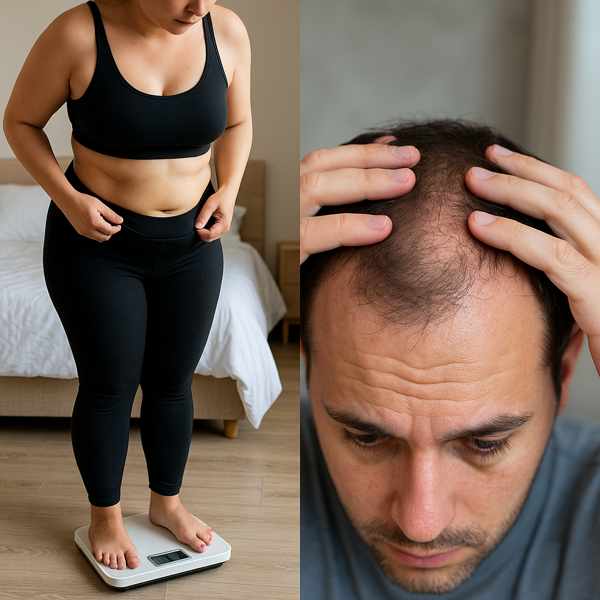
Losing weight is often a positive step toward better health, but it can sometimes come with unexpected side effects — like hair loss.
Understanding why this happens and how to protect your hair can help you reach your goals without compromising your confidence.
What Causes Hair Loss After Losing Weight?
Hair loss during weight loss is usually a result of physical stress or nutritional deficiencies.
Common causes include:
- Nutrient deficiencies
- Body enters stress mode
- Shifts in metabolism or thyroid function
- Rapid weight loss
Understanding Telogen Effluvium
It’s a temporary condition where hair enters the shedding phase prematurely.
Key facts:
- Usually occurs 2–3 months after weight loss begins
- No bald patches, just thinning
- Hair usually grows back with time
Eat for Hair, Not Just Fat Loss
If you're trying to lose weight, be sure not to miss these nutrients:
- Protein
- Iron
- Biotin and other B vitamins
- Zinc
- Vitamin D
Skipping meals or using crash diets can easily lead to deficiencies that trigger hair loss.
Staying Healthy Without Sacrificing Hair
You don’t have to choose between losing weight and keeping your hair.
Tips include:
- Lose weight gradually
- Eat a nutrient-rich diet
- Consider a multivitamin
- Manage stress and sleep
- Stay hydrated
What to Do If You’re Already Losing Hair
If you notice excessive shedding:
- Don’t panic
- Get bloodwork done
- Replenish what’s missing
- Avoid tight hairstyles and harsh products
- Hair regrowth takes a few months
Should You Talk to a Doctor?
A doctor or dermatologist can help identify underlying issues like:
- Thyroid dysfunction
- Autoimmune conditions
- Need professional correction
Conclusion
By understanding what’s happening inside your body, you can take steps to protect your health — and your hair.
Prioritize nourishment, patience, hair loss after weight loss and consistency, and your body will thank you — from head to toe.